“I don’t want to be a superstar”: Kehlani hates being famous – but loves fucking with gender norms
Singer-songwriter Kehlani talks finding gender euphoria on and off the stage, defiantly speaking her mind and her full-throttle new album, CRASH. WORDS BY ZOYA RAZA-SHEIKH There’s a collision on the… The post “I don’t want to be a superstar”: Kehlani hates being famous – but loves fucking with gender norms appeared first on GAY TIMES.
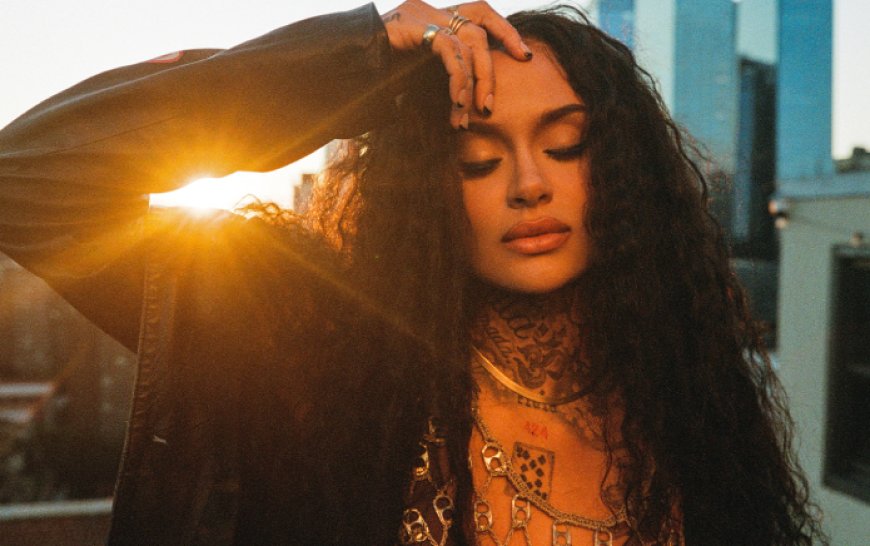
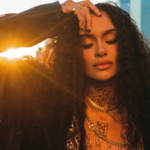
Singer-songwriter Kehlani talks finding gender euphoria on and off the stage, defiantly speaking her mind and her full-throttle new album, CRASH.
WORDS BY ZOYA RAZA-SHEIKH
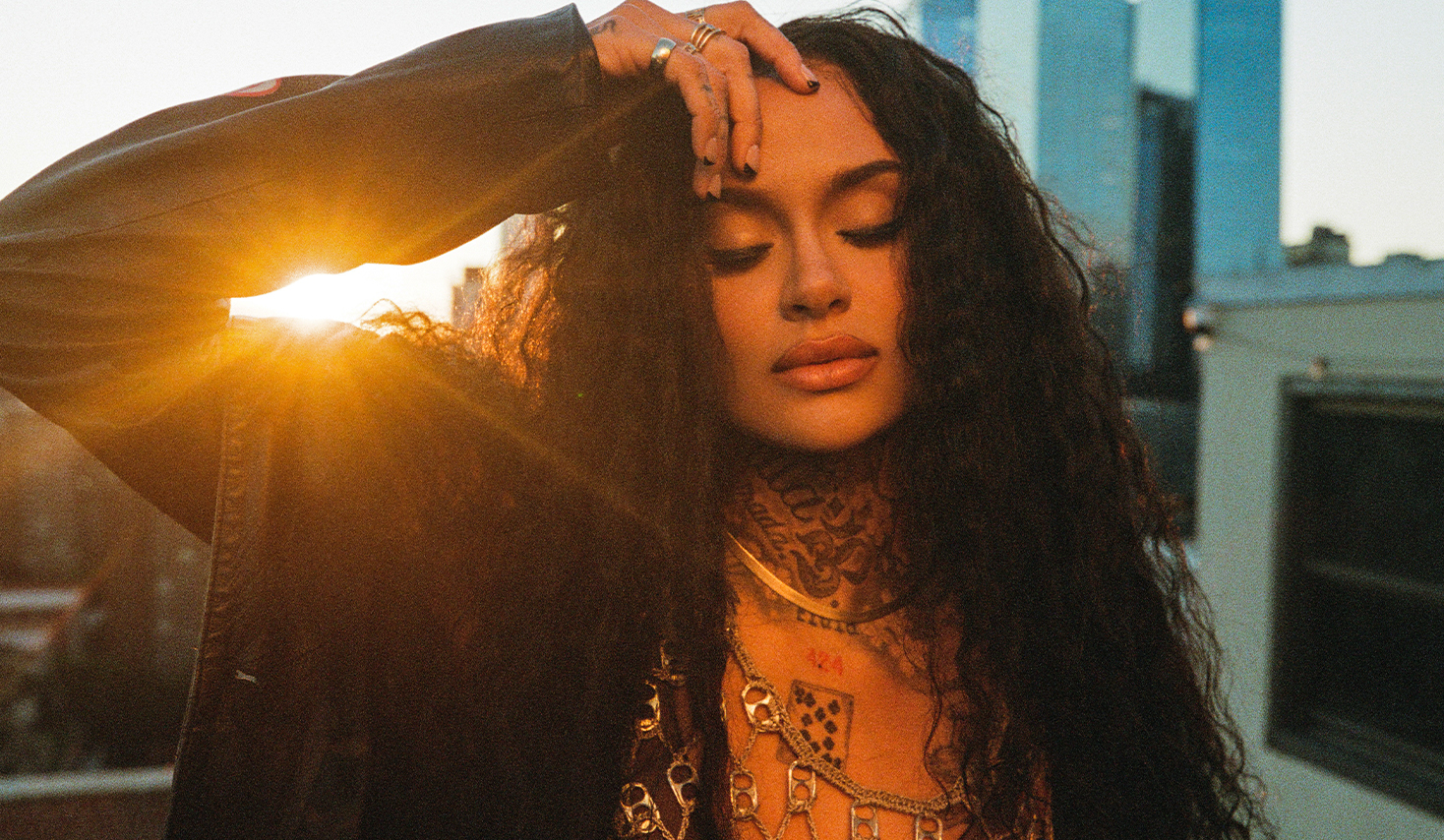
There’s a collision on the cover art of CRASH: a shattering of expectations, as Kehlani – donning black and gold six-inch thin strap heels and a glittering spiky silver two-piece – poses atop a totalled blood red car. Her return is striking, two years after her third studio album, Blue Water. Gone are moments of moss-covered beach rocks, the pools of salty seawater and the murky, earthy gradients of the ocean view. The tranquillity of the past has ebbed away and, instead, an explosion of emotion has come careening in. Her thighs are wrapped in aluminium-coloured car-like shrapnel which fans out at her feet in flame-shaped cutouts. Yet, her jet-black hair, now shorter and with blonde highlights, is perfectly fixed. CRASH is a metaphor and real-life visual of Kehlani’s private world: a transformative intimate space of glamour, deconstruction and self-reckoning.
On the surface, the musician’s fourth studio album hits like a sideswipe. It’s flashy and immense as you find yourself flailing through bouts of experimentation, steering between syrupy notes on ‘GrooveTheory’ to revelling in the sultry excess of ‘Sucia’ (which features Jill Scott & Young Miko). It’s forceful and uncompromising, in no small part thanks to the atmosphere of freedom garnered from days surfing and reconnecting with close family. It was the puzzle pieces of her life she, selectively, wanted to share. More often than not, the singer-songwriter shies away from the public – quipping that she “hates being famous” and the celebrity shtick of LA over Zoom – but CRASH is the opposite. It’s red hot, freewheeling and souped-up on queer desire. She reaffirms how we see her: sometimes an aspirational sharp suit-wearing Gladys Bentley, sometimes a gender-fluid internet meme of “Fominic Dyke”.
The arrival of a new record is a reintroduction, and Kehlani’s was intentional. She ditches the easily affixed R&B label and seeks out the thrumming hum of Las Vegas, the folksy twang of country and even steps into psych-rock just for the feel of it. She shelves the idea of a self-titled release and, instead, wades deep into a time when her life flipped upside down after being diagnosed with bipolar disorder. “The switch was realising that CRASH was this internal tale of my experience. I’m bipolar and only found that out recently and started my journey with my psychiatrist,” she says. “There were so many moments where it was clearly like ‘this is a high, this is a low’ and it was my mental journey and the album playing tag with each other, revealing things.”
As for now, the musician has dropped tour dates and she’s ready to share her outwardly queerest album with the masses. She’s standing for what feels right, rather than what people expect from her – and that’s the spirit of CRASH. It’s about feeling the full-throttle rush and walking away, hair strewn with broken glass, knowing you’ve come out the other side. Here, for her GAY TIMES’ cover story, Kehlani opens up about her Saturn Return-influenced album, becoming an outspoken voice for the LGBTQIA+ community and why she loves messing around with gender norms.
Kehlani, congrats on the album release. How are you doing?
I’m good. I just announced my tour so I’m excited. I have this funny habit of not making myself too aware of the actual details of things so that I can be shocked when they happen. I saw the capacity for some of the venues today which was really cool because I can’t believe I’m playing these shows.
You started working on CRASH last July in what you’ve described as the “perfect surfy summer”. How did the atmosphere and freedom of that time set you up, creatively, for this album?
That time allowed me to just have more fun. Life had gotten a little serious. When I first started the album, I had moved back to my hometown. I had decided to be a domestic family person and I was really just locked in that kind of life – I had lost all kinds of being whimsically creative. Being able to go from surfing to making music really popped the cherry of taking life less seriously, and everybody was having a lot of fun. I think you can hear the fun in the album.
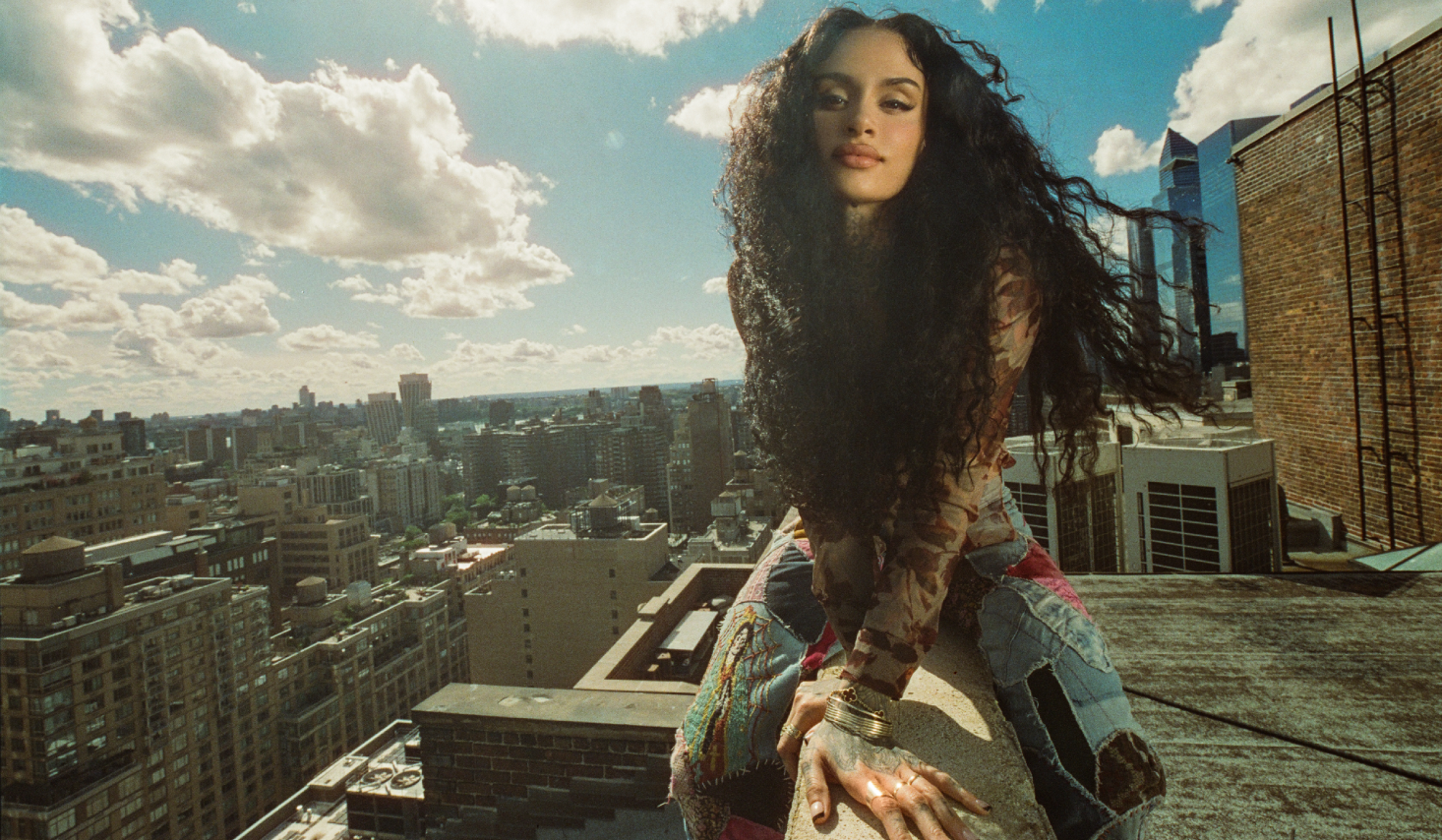
What made you want to trade the serenity of surfing waves for the motif of a smashed-up car?
Things started shifting in this really fast-paced emotional space, it very quickly went from sweet and surfy to charged-up and energetic. That’s where my mental health was at the time, and we were making this album in a bunch of different places.
You’ve regularly had a closeness with the R&B genre label. On this record, you deviate from that and experiment across sounds. You also worked with different producers and moved around while making the album (San Diego, LA, New York). How did these environments sonically leave an imprint on the album?
I was really blessed to have so many incredible collaborators. Everybody came together to push all of their own buttons and it didn’t feel like I had to force anyone to be excited and try things.
We really were hanging out every day and breaking down this very Los Angeles studio version of making music. We just really cracked that code and were making songs in houses. We would wake up together, make music all day, hang out, go to a bar, come back and make more music, then sleep and do it again. It became this melting pot and everybody was just down to try whatever with each other.
Did you have a specific music eureka moment in a location that really resonated with you?
We went to Vegas and I realised I hadn’t captured that desert part of Vegas, I hadn’t captured that sultry, sexy feeling and that’s how ‘Sucia’ came about. We were just sitting in the living room and I wanted to hear a snake rattle, and desert wind and needed a western guitar that sounded like I was stepping out and putting my boot in the saloon. We made the beat and the song that day. That was a good moment because we realised Vegas encapsulated all the worlds that we were talking about.
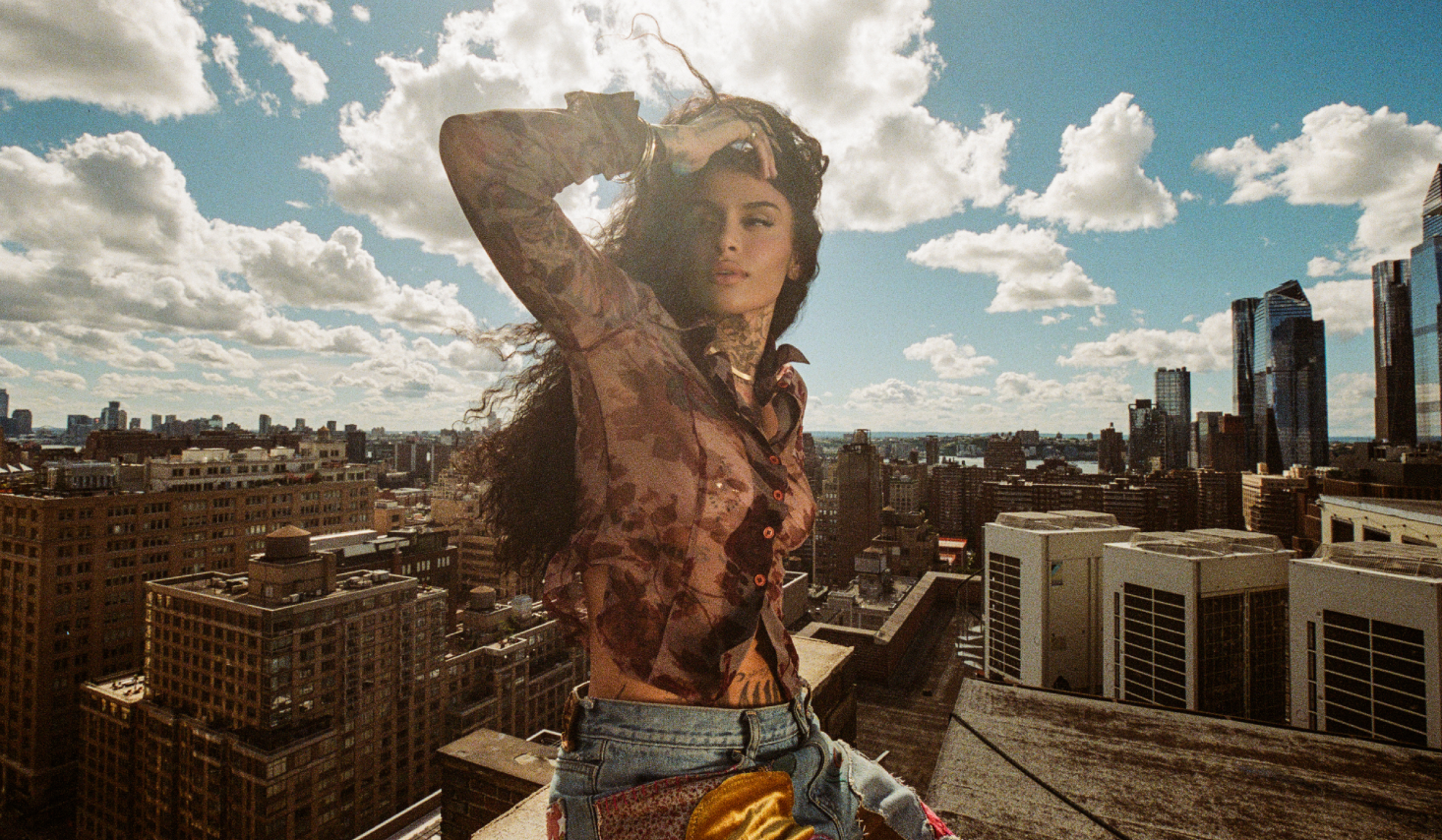
As a musician, you’ve experienced a lot of change in recent years. You’re also someone who embraces astrology and has spoken about the impact of going through a Saturn Return. What experiences have been the most formative in helping shape your art?
Saturn Return flips your life upside down. It really changes everything and it gives you the tools to continue afterwards. Making an album in the middle of it, I feel like there are no obvious themes [of Saturn Return] lyrically on there but, energetically and sonically, [the album] felt like the flip that my life has made. It felt like the mess, the chaos and the redemption I’ve been processing for the last two years.
What led you to name the album CRASH rather than rolling out a self-titled project like many fans were expecting?
To be honest, it felt too chaotic to be my self-titled album. I feel like subtitled albums are a little more traditional. This wasn’t my moment to explain what makes me or to sonically do that. I was just trying some shit and I really wanted to pivot and not make the same album over and over again.
CRASH is your fourth album and it’s been almost four years since you came out as lesbian. Do you feel like there’s been an alignment there, between yourself, your life experiences and your music?
I learned more and there was a more obvious throughline with how the album came out and with engaging with people about it afterwards. I felt like I was really trapped in my own little world when I was making this album. Then, I started to put out music during a genocide – I took the stances I take in the world, which started overtaking everything.
Your album rollout was intertwined with fundraising efforts to provide humanitarian aid in Palestine, Sudan, and Congo, with merch for your single ‘Next 2 U’ raising $555,000. Were you concerned about how your political stance would be received while putting out an album?
I wasn’t, I was more concerned with people thinking it was performative because that was not my intention. It was very clear for me to understand people know I’m dropping an album and I can’t stop it. I can’t [stop] putting it out right now. People are watching me for music videos and music.
I knew what I was going to do. I want to have an initiative which is raising money with a Palestinian company and a Palestinian designer. I was going to have to draw massive attention to it and cause a fucking shit storm to get the initiative in order to raise the funds
I knew what I was going to do. I want to have an initiative which is raising money with a Palestinian company and a Palestinian designer. I was going to have to draw massive attention to it and cause a fucking shit storm to get the initiative in order to raise the funds. I knew people would be like, what the fuck does this song have to do with Palestine? Saying ‘you’re just putting on a kufiya and waving around flags – what the fuck does have to do anything?’ I knew I was gonna have to just take that hit to the chin, but as long as we raised the money that we raised, that was all my concern.
Speaking of breaking the status quo, we’re also seeing a lot of LGBTQIA+ musicians speak out about political matters. We’re also seeing the same names – Chappell Roan, Reneé Rapp, Arlo Parks, Billie Eilish – become part of a new sapphic renaissance, a culture shift you’re also a part of. Why do you think queer women are having a moment right now?
I think we’re honestly coming into this anti-patriarchal [moment] where a lot more people are prevailing who don’t necessarily appeal to the male gaze. That’s really fucking cool because there has always been queerness in music. It’s really special to see so many people who ride the gender lines or disrupt gender binaries, especially those who are masculine-presenting, be representative of queer music. When I’m dolled up, I don’t look like this [more masculine presenting]. This is my day-to-day. Typically, I look a little different than I look when I do my job.
Do you enjoy being able to flit between the gender fluidity of your presentation, on and off the stage?
Oh yeah, it fucks people up, that’s why I enjoy it – it’s hysterical! When I first got my hair dyed the other day, I happened to have a wife beater on and I posted a video of my hair dyed and everybody was ‘who the fuck are you, Paul Walker?’ They were like, who is this handsome person? So many people were saying ‘you’re so handsome’ and it was kind of doing it for me!
I enjoy being in my own energy and what that looks like is just knowing that it’s what is most true for me.
I enjoy being in my own energy and what that looks like is just knowing that it’s what is most true for me. It does confuse people all the time and it’s like whatever part of me they’re attached to, they freak out when it leans to the other [gendered] side. Just knowing that I find a home in that helps them to know there’s no pressure to align in any kind of way. You can fluidly have any journey that you want. I love how much it pisses people off, personally.
Does your gender expression really bother people?
I think [people] just want you to be palatable in whatever way is appropriate to consume you. I don’t get shocked at their reactions anymore because I know what I’m up against. I know my audience has had to follow me through a lot of changes in this life. So, there are some people who are simply stuck at another level of me from five years ago. If I were to get my short hair one day, have a fake moustache the next day or have a floor-length wig and my titties mostly out, you’re just gonna have to deal with it.
You’ve spoken about setting and achieving personal goals, including retiring your mum, getting a good school for your daughter, and not having to worry about housing. How have your personal ambitions steered you when it comes to speaking out about your background, queerness or identity?
It might be toxic positivity but I really try to count my blessings and praise God as much as possible. Life is short, I’m not participating in anybody’s rat race. I’m not playing by anybody’s rules or anybody’s delusions in any way, shape or form. I’m honestly here to do the things that make me really happy and, hopefully, it makes other people happy along the way – that’s what’s grounding and what I keep coming back to. It’s taking care of the people that you love and influencing people that are paying attention to you in a correct and positive way.
When you tour you get to bring that ethos along with you too…
It’s the only time as an artist that you get poured into. You’re pouring out the rest of the time. The entire time you’re putting out music, you’re telling your story, you’re doing interviews and telling your business, and you’re putting your life on display. Touring is one of the only times you get to see that love you put out in the world come back to you.
As for what’s next, you’ve regularly been asked about reaching the “next level”, whether that’s fame, success or becoming a bigger name in this industry. What’s your next priority?
I’m dropping an R&B mixtape. I started working on it a week and a half ago: I wanted to make some songs, put them out and perform them. I’m gonna love it and fans are gonna love it and it’s gonna be a good time.
I’m gonna be real. I don’t wanna get to another level. I don’t like being famous. I don’t like talking about my business. I don’t like having to grow up in front of everyone. I don’t like having to take my lessons in front of everyone. I don’t like doing anything except the music part, really, that’s why nobody sees me anywhere. I don’t go to stuff. I get invited to a lot of stuff and I don’t go to it. A long time ago, I came to terms with separating other people’s projections of what they thought my career should look like from what I actually wanted.
I’m gonna be real. I don’t wanna get to another level. I don’t like being famous. I don’t like talking about my business. I don’t like having to grow up in front of everyone. I don’t like having to take my lessons in front of everyone
A lot of people use the word ‘flop’ or say ‘you’re this kind of artist, you could be here’ but has anyone ever stopped to consider that I’ve carefully designed my life around prioritising how I want this shit to feel? I’m with those people [major celebrities] sometimes and it really doesn’t seem like that feels good. I want to have fun with this shit for the rest of my life. I don’t want to be a superstar.
CRASH is out now via Atlantic.
The post “I don’t want to be a superstar”: Kehlani hates being famous – but loves fucking with gender norms appeared first on GAY TIMES.

 Mark
Mark 





